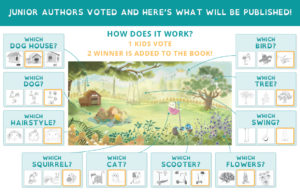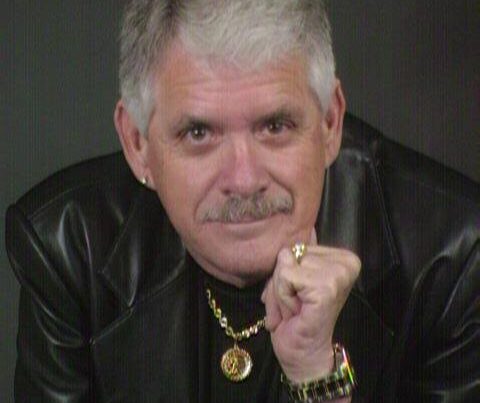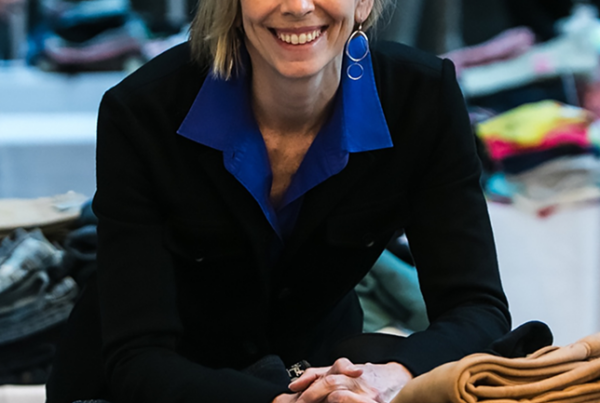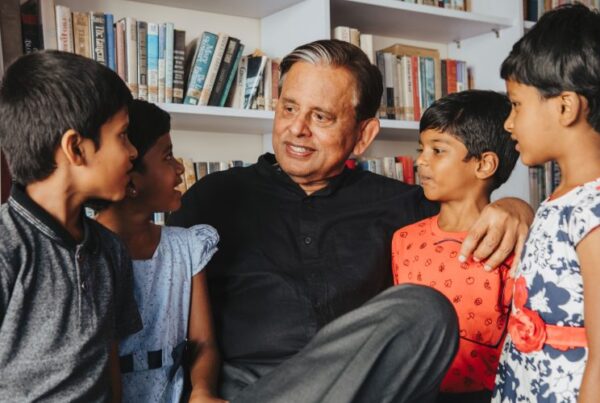Podcast: Play in new window | Download
Subscribe: RSS
In today’s world of distance learning, parents, teachers, and students are struggling to cope.
How do you make learning fun and encourage involvement?
How do you make a meaningful impact in the lives of people in your community?
Is it possible to do these all at the same time? – Yes!
Listen to this podcast episode as Susie Harder, a specialized speech language pathologist, shares how her passion translated to inspiring literacy in children and how she harnessed the power of creativity and collaboration with the Junior Authors Program.

Susie Harder
Susie Harder, M.A., CCC-SLP is an experienced clinician who devotes much of her passion to working with children who stutter. She works in private practice and the school setting to help support children and provides workshops and consulting-based support to school districts across California.
She recently created the Junior Authors Program (a revolutionary literacy-based platform). Most recently, when the Central California Creek Fire started and children from her hometown lost their homes, Susie started brainstorming how to best support these kids. When she couldn’t find enough resources, she simply decided to create it.
Within a week, she had written a children’s book themed around what these kids had just experienced, found an editor, taken a course on children’s books, and started looking internationally to find the best illustrator. Her child-development skills guided her toward sharing this inspirational knowledge with kids. Thus, she created a unique voting-based platform to reinvent how children connect with literacy and books.
Through the Junior Authors Program, children across the world vote to decide characters, setting, and story details of a book as it’s being created. Children get to see behind-the-scenes and connect with her through fun video posts and “Ask The Author Live” events, and are empowered by contributing to the content of the book from rough draft to published book! The children’s book, Where’s My House with a focus on community involvement and reforestation.
The children’s community event allows Susie to celebrate kids and their positive work toward rebuilding the community. Susie has included touchingly sentimental elements in every piece of support she’s provided and many parents report that working with Susie on this project was the happiest they’ve seen their child since they lost their home.
What We Discuss With Susie Harder in this Episode
- Her inspiration for the Junior Authors Program
- Gamified literacy
- Having ideas and taking action
- The 3 pillars of the program
- Get involved in the Junior Authors Program
- What’s next? Her vision and future projects
Episode Highlights
What inspired you to start the Junior Authors Program?
My clinical expertise is in speech language pathology and my background is focused on working with children. I was a private practitioner for many years specialized in working with children who stutter. I love working with kids and I have the passion for them to be heard and seen. Most speech pathologists, such as myself, utilize books because we’re so rooted in building early communication skills. With what happened with the creek fire in this Mountain Community that I grew up in, the idea came about to create a wonderful book that will support the kids and where these kids can see their journey. Just like how a preschool teacher would take any book and create many conversations or lessons and goals and bring it all together, this creation of the book will help them process what’s happening. The ideas continued to come in – to build writing prompts and conversational prompts, to create a grief journal based on it. The goal was to provide this type of support for these kids and it blossomed into a collaboration. Within that first month, the book was written, edited, and illustrated. What I wanted was to actively involve the kids behind the scenes because I believe that it’s more powerful [to have them involved] than simply producing a final product.
(Susie shares details about how the children aged two through middle school and high school get involved in the Junior Authors Program and how they learn life lessons in the whole process, the editing process, for example)
On Rebuilding:
The real reason behind this project is to support kids who have lost homes.
What I was wanting and needing for the kids here locally was something positive to be involved in. The question was: “Are we going to wait until things really go wrong, when these kids have behavioral outbursts and meltdowns or could we do something in a more proactive sense and have these kids involved in something that’s inspiring and fun, and allowing them to travel that journey in a really positive way?” We work with this kind of guided reframe [of mindset] that it’s not us always going back to [what happened with] the fire, but it’s us looking at rebuilding. So, the last half of what we’ve been doing is rebuilding for the animal [characters] in the book. The Junior Authors Program allows kids to get actively involved in creating the story by sending in their ideas, voting on different things and contribute to building and designing [the book].
On “gamified literacy” and becoming an author:
Instead of building an avatar for a video game world, we’re building things. We’ve done a lot of work on the character building side of [the book].
Ava is our main character, and Charlie is her dog and Charlie loses his dog house. We’ve had conversations on the following: “What makes the hero?” and “Does a hero always have a cape?” and “What is it that she could be doing that would make her a hero in this community?” and “How do you take time to identify someone in need?”
Within the book, there’s strategic places where kids have to find one of the animal [characters] that hasn’t yet had a home and figuring out what to do with that kind of struggle. It makes [the process] of going back to the basics fun and interesting because it’s not screen based, it’s being actively [and directly] involved in it and building it.
The idea of going from your “Blah” to “Aha!”
This year has been hard with distance learning because there’s a lot of things that the kids have to do because they’re supposed to do it.
I thought of giving the kids something that they can do, that they get to do. It was so fun seeing kids and parents and teachers [getting excited about] finishing their packet so they can work on the book. They are working on things that are embedded within the context of the story.
That idea that you are creating your own story and what that really means as a person that you’re not given a story. You are creating your own story. It’s your life. It’s up to you.
Take time, build it correctly, and then let’s celebrate and have fun with it.
With a lot of interest from teachers and schools, I’m planning to work on getting teacher input to build the books that teachers want for their classrooms. So instead of the teachers trying to find the book that matches what they’re trying to teach, we’ll create the book that can teach the things that they want to teach. It will be easier for us to create classroom materials. Everyone is excited because it’s something very purposeful.
On having ideas and taking action:
Before all of this, if anyone suggested for me to focus on this one thing and work another 40 hours a week without pay and give away all my clients, I would have said “No”. I love being with my family and I love my job but my days were full (I try to avoid the term busy.)
The shift happened when I realized that it’s about being utilized for your skill set in a really powerful way that’s needed right now. It starts as one idea and that idea becomes different layers of all of these other ideas that are coming. That’s when you will realize, “This is what I need to do right now.” There is no question about it. There is no need to decide or a need to weigh the options.
(Susie recounts the challenges she encountered as a mother and a wife and how she overcame those challenges.)
The chunk of time to make it through that [phase] was the hardest because it doesn’t yet exist. Then as you start getting some momentum, it exists a little bit differently and a little bit more concrete, [that’s the time] it starts to make sense to people. You start getting a little bit more support. But as I was starting out, I felt like there was no room to doubt myself because I truly believed that this is the time, this is the reason, this is exactly how the skills I have need to be used right now.
I would say, I’m confident in my skill set, as a speech language pathologist, I’m confident in my skill set as a mom. The validation part is such an interesting one because as I was going into this [project], I felt so passionately about the purpose of it. At first it was not very validating [in the sense that] there were so many things that I was doing, that we’re not getting any sort of traction. When I think of the kids who are missing out when they’re not voting at the beginning, that’s my driving force – to make sure that at least all of the kids here locally, know that this is an option.
The idea is that what you’re doing needs to be driven from what you know it will look like and not [driven by] what it looks like right now, not the attention that it’s getting right now.
(Susie shares about one of the books she read about bullets vs. cannonballs in relation to ideas)
What is the mindset that you have with building foundations with your ideas?
Many of us who wake up with ideas and go to bed with ideas, they are just ideas. Even if we’re taking the time to follow up on some of them, they don’t really have a landing place.
With my work with kids, and up until recently, in my private practice, when I have ideas, I try to channel that into specific avenues for example, if I have ideas for parents, then I can channel that through doing a parent course. It’s really building the foundation for all of those things that I truly feel are so important about what kids need.
Oftentimes, as a parent and as a clinical service provider, I have notes about the things that I would love for kids to value and the things I would really like to see [happen] but those are all just words until I do something to help make that difference.
For literacy, and for this concept of kids feeling heard, what’s happening with distance learning right now and with everything that’s happened this last year, a lot of kids have been robbed of the sense that they get to do independent decision making. We have to be careful and cautious as adults, when we’re telling kids [about] what their value is, or what they’re good at, or not good at or comparing [each other].
I use the iceberg analogy for a lot of things within my field – what it is you see and what’s actually happening below the surface. In the concept of stuttering, it’s those overt moments of stuttering that you see versus the 90% [of what you don’t see behind the scenes] like the icebergs under the water. one of the things that I saw most recently was a version of that, but it had success at the top. Especially with high achieving parents raising their kids, it’s so easy to focus on the success and just as easy to forget about all of the parts that helped create that success like persistence and growth mindset in general but we have an opportunity to show and tell kids about those things.
That’s intentionally why I call them my junior authors. The original name was “teachable moments” because we’re taking moments and shifting how we look at it. Teaching parents who need some guidance or some ideas about how to do that.
[For example], “How do you praise your child in a constructive way?” Saying, ‘Good job!” is good, but what is it that’s good about what happened?
Is it good because of the good grade or is it good because of studying hard and working hard [for it]? It’s about teaching and practicing that specific type of praise to help build important characteristics.
What are the three pillars of the Juniors Authors Program?
- VOTE – getting the kids to do intentional voting to be heard, to be able express themselves and do things together. It is not about who wins but being able to participate and to get involved.
- PUBLISH – The importance of the skill of attention to details and building writing and reading literacy.
- GIVE – building future philanthropists to enable other communities to raise funds on their own. It is not about money but a way of contributing for the needs of others.
How can schools get involved in this project?
Individuals can nominate their school. The schools will have access to it and then the teachers can do it in any of their classrooms. They will have all the worksheets that go along with it. So on the website, there’s a way you can submit and nominate your school to be included. We’ll be doing one in the fall and one in the spring and it will be guided based on what teachers are wanting the message to be. The story will be created in a very similar way. The kids will be able to vote and build it. When it’s available, it can also be used as a fundraiser for the school.
What’s next for the Junior Authors Program?
Starting next fall, the books’ text will be open – I will not be writing the text for that story. The books will come out and have a space where the child could actually write the text in their own book. The book will be uniform – the cover and the author’s page and the illustration. Each child will have their copy that they get to physically write. Within the classroom they can do the drafts and the editing process. They can have their final draft ready and when they get their book, that’s their keepsake. There’s something wonderful about having that intimate bond with literacy and that ownership and that keepsake part of it. Also, we will have many other programs coming up soon such as the Teacher Ambassadors program.
Connect With Susie Harder
- Website: https://www.authorable.com
- Facebook: https://www.facebook.com/authorable
Did You Enjoy The Podcast?
If you enjoyed this episode please let us know! 5-star reviews for the Leaders Of Transformation podcast on Apple Podcasts, Spotify, Pandora or Stitcher are greatly appreciated. This helps us reach more purpose-driven entrepreneurs seeking to make a positive impact in the world. Thank you. Together, we make a difference!











